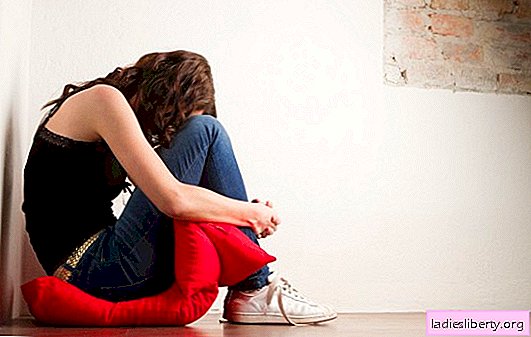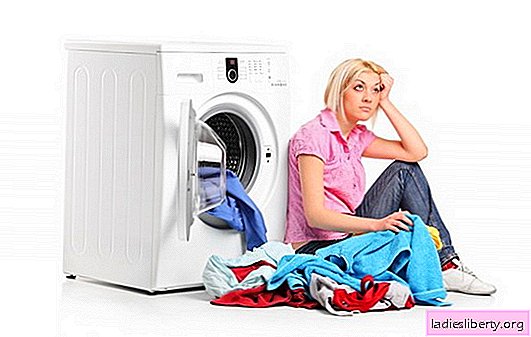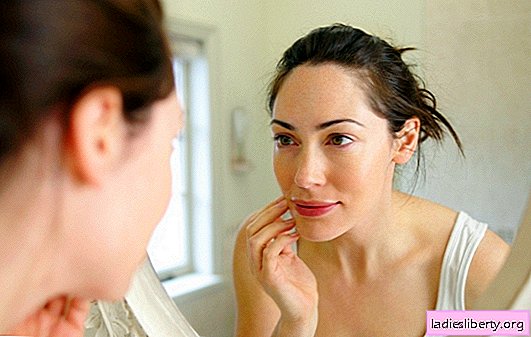
Itching in itself brings a lot of discomfort to the person, and if we talk about the itching of the fingers and toes, the discomfort is even more acute.
The fingers and toes perform a tactile function, and as the organs of touch, they are supplied with a large number of receptors (nerve endings). For this reason, itchy fingers - this is the most painful discomfort manifestation.
You can not find such a person who has never experienced the need to "scratch" an itchy patch. In most cases, this is quite enough to forget about the problem. However, what if the itch does not go away even with a traumatic combing, and one single thought lingers in the head with a splinter: to get rid of such an unpleasant condition?
Despite the seeming simplicity of the problem and its solutions, there are a lot of pitfalls in this issue.
What is itching of the fingers and toes?
Itching is an uncomfortable sensation, causing the need to comb the affected skin. There is no clear medical definition of this physiological state.
If itching of various parts of the skin can be observed quite often even in a completely healthy person (this is a normal physiological reaction of the body to a stimulus, for example, insects, dust, tiny particles of substance in the air, etc.), then the itching of fingers and toes appears much less frequently. . An obsessive, uncomfortable feeling in the area of finger pads, phalanges, and between the fingers, almost always indicates the presence of a particular dermatological disease.
Causes of itching fingers and toes
Almost always the source of the painful itch is exogenous (external) causes. Of course, this is not an absolute statement and some diseases can cause itching, but, nevertheless, these pathologies almost always provoke generalized (without precise localization) itching. If we talk about diseases that provoke a specific symptom of itching fingers and toes, their list will be very modest.
The reasons:
1) Thermal irritation. The skin of the fingers contains a huge number of receptors that transmit nerve signals to the spinal cord and brain. Since fingers are an important part of the system of touch, even a small intensity of the impact can cause a strong "response" from the brain, which will be perceived by man at a subjective level, like an itch.
The higher the intensity of heat exposure takes place, the more itchy patient will experience. Therefore, first-degree burns (which are accompanied by a slight reddening and damage to the surface layer of the skin - the epidermis) are accompanied not so much by pain as by itching.
However, if the deeper layers of the skin are damaged, the itch receptors will be damaged and the intensity of the sensation will drop sharply.
Another good example is frostbite of the first degree. With a slight frostbite of the fingers, capillary stenosis occurs and the temperature of the surrounding tissues decreases due to a lack of blood. As soon as the cold stops, the vessel expands, blood rushes to the fingers and warms the tissues.
Expansion of blood vessels leads to severe irritation of itching receptors. Therefore, almost always after a “walk” in the cold with unprotected hands or in insufficiently warm shoes, fingers begin to itch unbearably.
2) Mechanical and chemical damage to the epidermis. The insignificant damage to fingers with aggressive chemical reagents (for example, household chemicals: bleach, chlorine solution, etc.) or injury (scratches, abrasions) lead to a similar effect.
3) Psychosomatic factor. Psychosomatic causes and their role in the development of itching fingers and toes has not yet been studied. However, the fact that stress, nervous shocks, and psychological fatigue can cause unbearable itching of the fingers - is undeniable.
4) The use of topical drugs, as well as cosmetics. Many ointments, gels can cause discomfort (Fastum gel, Troxevasin, etc.). The same is observed when using low-quality cosmetics or products that contain substances with a high allergenic potential.
5) Allergy. The most common cause for which itchy fingers and toes. A reaction that appears on the skin of the hands or feet can be triggered by the local use of ointments or cosmetics, and the intake of certain products, etc. It all depends on the individual characteristics of the organism.
6) Various diseases. Thus, diabetes can manifest. In diabetes mellitus, the permeability of cell membranes falls, most of the synthesized or consumed glucose is not absorbed.
because of lack of glucose lipid, lipoprotein and protein exchanges are disturbed, and therefore metabolism changes significantly. Metabolic changes lead to the extinction of the sebaceous glands. The skin (including in the area of fingers) becomes dry and cracks.
The surface layers of the skin are provided with a mass of itching receptors. When damaged, these receptors react violently, giving a signal to the brain. Subjectively, the patient feels it like an itch.
Similarly manifested eczema. Eczema of the fingers and toes may be caused by an infectious skin lesion. But more often, we are talking about an allergic etiology.
Infectious diseases, such as streptoderma, etc., contribute to the formation of bubbles on the skin (mainly hands and face), causing intolerable itching.
In addition, foci of skin lesions for liver diseases (cirrhosis, insufficiency) almost always at the first stage are localized in the area of the fingers and between the fingers. It is quite obvious that the poisoning of the body with toxins leads to itching of high intensity.
Fungal infections - At the initial stage, itching. Predominantly affect the toes and nails. Often, mycological pathologies cannot be distinguished from allergic eczema or infectious diseases without the help of a specialist.
Often it is in the area of the palms that are localized. scabies.
7. Insufficient hygiene of hands and feet. It is necessary to "wash off" dirt, excess sebum and other "waste structures" from the skin surface in time. Particular attention should be paid to the legs, since the lower limbs most of the time are in cramped conditions (this recommendation is especially relevant for patients with excessive sweating of the feet).
Diagnosis of itching fingers and toes
The discomfort in the fingers is a rather important and informative indicator that signals one or another pathology. Their number is not so large, therefore, for an experienced dermatologist, making the correct diagnosis is a matter of time and a correctly chosen diagnostic strategy.
Diagnostic measures include:
- collection of anamnesis;
- laboratory tests (complete blood count, skin scraping).
* History taking is an oral questioning of a patient at a full-time admission to determine the alleged cause of the disease, the course of the pathological process. Complaints of the patient give the doctor the opportunity to establish the primary diagnosis and choose the optimal diagnostic strategy.
* Laboratory research.
As a rule, almost all diseases that cause itching of the fingers and toes are accompanied by changes in the blood. In the overwhelming majority of cases, the doctor will have on his hands a picture of the inflammatory process of varying intensity (depending on the individual characteristics of the organism and the “neglect” of the skin pathology).
In general, the blood test will be leukocytosis, increased ESR, allergy will indicate eosinophilia, hemoglobin index will tend to exceed the norm. Low concentration of red blood cells indicates a "neglected" inflammatory process. Also, infectious diseases "give out" themselves with elevated platelet levels.
Blood and urine analysis for sugar. Allows you to identify diabetes.
Skin scraping is a relatively easy way to determine the presence of mycological (fungal) and infectious lesions. At the moment - this is the most informative study.
* In some cases, the doctor may resort to dermatoscopy. Despite the fact that this instrumental method has found its wide application in oncology and is more often used to detect melanoma at an early stage, it is also suitable for assessing the current state of the skin and the extent of damage to its structures.
Skin problems related to finger discomfort are complex and diverse. The symptom of pruritus is etiologic, because the range of treating specialists is wide.
If the itching of the fingers and toes begins after taking a certain food, contact with a particular substance (dust, animal hair, hair, pollen) or increases for the reasons mentioned above, one of the types of allergic reactions is more likely to occur.
The attending specialist: allergist, allergist-immunologist.
Itching, starting after severe psychological shock, stress, nervous tension, has psychosomatic causes.
The attending specialist: a neurologist.
In the family were persons suffering from diseases of the gastrointestinal tract (mainly, diseases of the liver and gall bladder). The patient has a history of jaundice in childhood or adolescence. Recently, there has been the taking of hepatotoxic drugs (the latest generation of antibiotics, high-dose antibiotics, calcium channel blockers, drugs for hypertension, etc.). In this case, there is a risk of developing liver pathologies, up to cirrhosis.
The attending specialist: a gastroenterologist.
The patient is constantly or occasionally suffering from thirst. There are uncontrollable “jumps” in weight, spots of obscure origin have appeared on the legs. Often develop bruises on different parts of the body. In this case, we can talk about diabetes.
The attending specialist: an endocrinologist, in part - a gastroenterologist.
The itching of the fingers and toes has an unexplained cause. The patient also has no thoughts about the source of the disease.
Treatment specialist: dermatologist.
If there are no ideas about a possible source of pathology, the dermatologist is the first specialist to visit.
Itching of fingers and toes: treatment
As already mentioned, itching has a lot of reasons. Therefore, a single treatment recommendations can not be given. Moreover, itching in the fingers is not a disease. It is necessary to treat not the itch, the disease that caused it.
The main and most common cause of itchy fingers and toes is allergy. In order to remove the painful, uncomfortable feeling by yourself, the best solution would be to take antihistamines (Citrine, Suprastin, etc.). Preference should be given to drugs with a minimum of side effects. Their independent example in a small dosage is unable to have any significant negative health effects.
In more severe cases, do not delay the visit to the doctor. Under the supervision of a specialist, hormone therapy with local action is permissible.
Fungal lesions, as well as infections, there is no sense in treating yourself. To eliminate the source, complex therapy with the use of local antibiotics, anti-inflammatory drugs, hormonal ointments, etc. is required.
If the source of itch is a psychosomatic factor, light sedatives will help (Novo-Passit, etc.). However, "overeat" motherwort, and even more so valerian is not worth it. These drugs reduce the concentration of attention and inhibit the emotional centers of the brain, make a person "inhibited."
It often happens that the problem lies in poor hygiene. In this case, help frequent washing hands and feet.
In all other cases, the patient is recommended to visit the attending physician. In no case should not resort to the means of traditional medicine. If it turns out that the "root of evil" in the immune response, herbs can play a cruel joke and only aggravate the course of the disease. Without special allergy tests, it is impossible to name the list of allergens for this patient, and therefore it is not worth the risk.
Prevention of itching of the fingers and toes
- Legs should be washed 1-2 times a day. Hand washing should be more frequent. All in accordance with standard recommendations (after visiting the street, after contact with potential allergens, etc.).
- Care should be taken in the use of potentially allergenic foods (nuts, fresh red fruits and vegetables, honey, whole milk, etc.).
- Eliminate physical contact with people suffering from infectious or fungal skin lesions, as well as with everyday objects infected.
- Use only your gloves, socks, and home shoes. In public places (swimming pools, etc.) wear only your own slippers.
- Do not walk barefoot. Especially in public places.
Thus, itching of the fingers and toes can be caused by a number of reasons, both natural physiological and pathological.
Fortunately, this uncomfortable feeling almost never indicates serious illnesses. Nevertheless, without adequate therapy and removal of the source, the patient’s quality of life decreases dramatically.
Therefore, at the first manifestations of itching, you should immediately contact a specialist, undergo a diagnosis and proceed with the implementation of the assigned recommendations. Only in this case, the itch can be guaranteed to get rid of.











